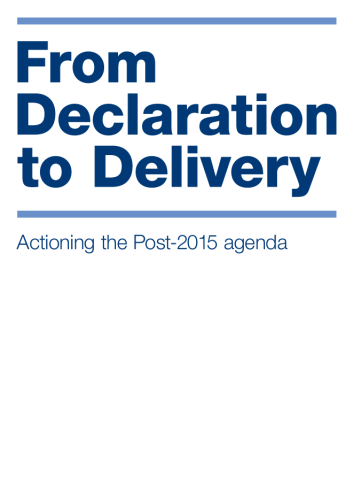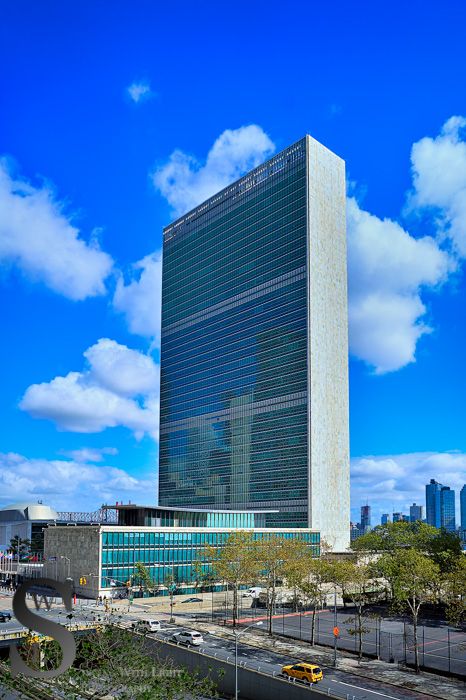Actioning the Post-2015 agenda
This synthesis report is based on a series of ‘reality check’ roundtables that explored the challenges of delivering the 17 Sustainable Development Goals (SDGs) and 169 targets that will replace the Millennium Development Goals (MDGs) in 2016.
The objective was to ground the SDGs conversation in national reality, engaging senior decision-makers in capitals with the implications of implementing the agenda, while ensuring the negotiations in New York are better informed by national realities. The initiative has been supported by Save the Children and partners and the report has been prepared by an independent expert.
Recognizing that governments are ultimately responsible for the design and delivery of national development plans, and the integration and implementation of the SDGs, the roundtables had governments at their heart, although other stakeholders were represented at many of the events. The following governments participated: Colombia, Denmark, Ghana, Guatemala, Mexico, Pakistan, Peru, and Tanzania.
- The roundtables concluded that the MDGs had helped to improve national planning and ensure a greater focus on development priorities, but that delivery in developing countries had sometimes been impeded by a lack of human, financial, and technological capacity.
- There is general enthusiasm for the potential of the post-2015 agenda to enrich national policy and strengthen national development plans. However, this is combined with genuine concern about the breadth and ambition of the new agenda, especially for countries with limited capacity, and given the risk that countries will “pick and choose the easiest elements.”
- Participants in all countries agree that the sustainable development agenda will only succeed if it is integrated into national planning and translated into policy at national levels. Plans must be strengthened where necessary in response to the new goals, while all countries recognise the challenge and critical link between planning at national and subnational levels.
- Delivery of the post-2015 agenda will be impossible without cross-government mechanisms and dynamic country-wide partnerships for sustainable development. Consultation must not be a cosmetic process, but a genuine attempt to ensure all stakeholders play an active role in delivery.
- The Financing for Development conference in Addis Ababa is seen as providing an important opportunity to reform the international economic, financial and tax systems in ways that would support post-2015 delivery. Some countries are working on priorities that resonate with the agenda for Addis, such as establishing a minimum social floor.
- Data is seen as fundamental to delivery, but it is important to avoid the prospect of “greater investment in measuring targets than in implementing them.” Retrospective accountability is not enough. Policymakers need timely information that will allow for better decision-making.



